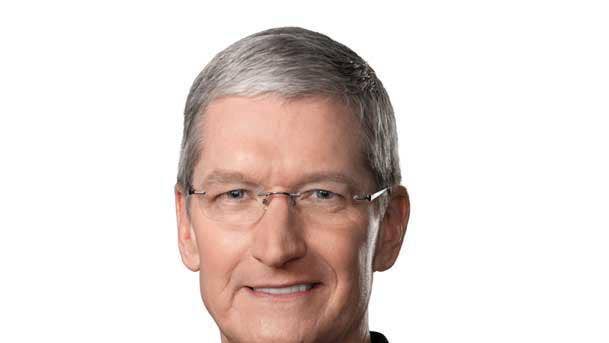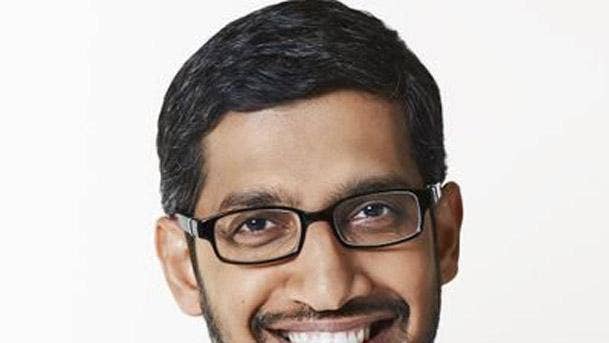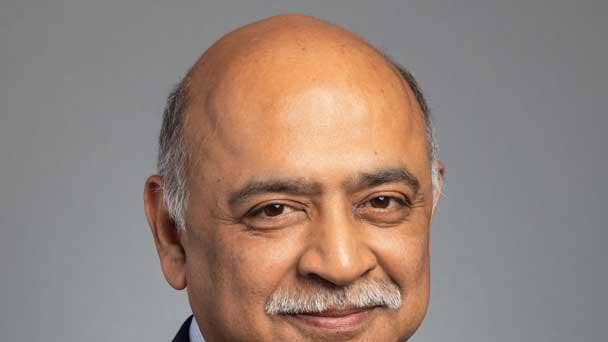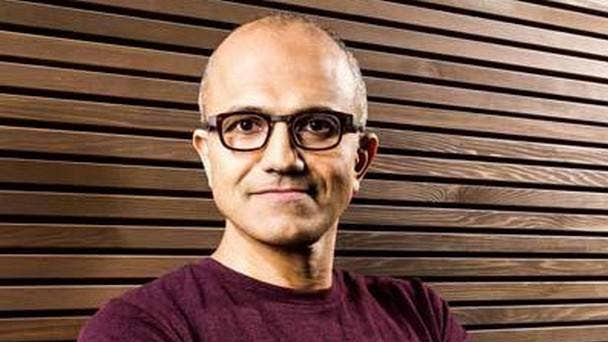10 Hyperscale Data Center Companies To Watch In 2021
From Amazon and Microsoft to Equinix and Nvidia, here are the 10 hyperscale data center companies you need to follow in 2021.

The 10 Data Center Companies To Follow This Year
Unlike many industries across the globe, the COVID-19 pandemic is actually benefiting many hyperscale data center operators as demand for cloud and digital services has skyrocketed. The need for secure and reliable data centers—considered by many as the hubs of the internet—was critical in 2020 to support work- and learn-from-home initiatives across the globe.
Hyperscale Capex spending on data centers by the 20 largest cloud and internet service companies in the world hit a record-breaking $37 billion in the third quarter of 2020. Data center spending by these companies from January 2020 to September 2020 totaled $99 billion, up 16 percent year over year.
“The hyperscale companies are once again breaking all records for their level of spending, spurred on by business models that have actually benefited from the pandemic,” said John Dinsdale, a chief analyst at market research firm Synergy Research Group.
Many hyperscale data center vendors are investing heavily in various markets from new processors and cloud storage to edge computing and 5G.
As the COVID-19 pandemic continues to fuel the expansion and build-out of new data centers, CRN breaks down the 10 hyperscale data center companies you need to know in 2021.

Amazon/Amazon Web Services
AWS CEO: Andy Jassy
Amazon is arguably the largest hyperscale data center company in the world this year. The Seattle-based company’s growing data center footprint is being fueled by AWS’ growth as well as innovations such as AWS Outposts with an eye toward edge computing and 5G.
AWS continues to build data centers across the globe, consistently being one of the top spenders in data center Capex year after year.
The public cloud market leader is also striving to bring AWS to the edge, looking at the data center as another edge node. At AWS re:Invent 2020, the company launched smaller versions of Outposts and software development kits for edge computing, as well as adding Local Zones. Amazon is also investing heavily in solar and wind power to accelerate its renewable energy strategy that powers its cloud data centers.

Apple
CEO: Tim Cook
Although Apple has historically kept its data center business close to the chest, the company has consistently been one of the top five biggest data center Capex spenders in the world for the past several years. In late 2018, Cupertino, Calif.-based Apple said it will spend $10 billion on U.S.-based data center construction over the next five years.
However, it is key to note that Apple’s Capex spending on data centers has been declining year over year, according to data from Synergy Research Group. In addition, Apple reportedly sold its Newark, Calif.-based data center to T5 Data Center in October. It will be interesting to see if Apple unveils any big data center deals or plans in 2021.
The iPhone giant recently unveiled its first generation of in-house Mac chips, the Apple M1, as it prepares to debut the next series of its custom-designed processors in Macs as soon as spring 2021.

Digital Realty
CEO: William Stein
Digital Realty is the largest colocation data center provider that owns all of its own data centers with more than 280 facilities worldwide in over 20 countries. Throughout 2020, all of Digital Realty’s data centers remained fully operational.
In the largest data center acquisition of 2020, Digital Realty purchased European data center giant InterXion for $8.4 billion. Netherlands-based InterXion has 53 facilities in 11 European countries and 13 metro areas. The company said the merger has created the leading pan-European data center provider.
The company continues to buy land across the globe to build new or expand its data center sites as well as acquire other colocation vendors such as Lamda Hellix. Digital Realty also recently launched Data Hub featuring AWS Outposts, enabling customers to rapidly deploy AWS infrastructure on its PlatformDigital solution.

Equinix
President, CEO: Charles Meyers
Equinix is the largest real estate investment trust (REIT) focused on data center and interconnection provider in the world.
The Redwood City, Calif.-based company has been expanding its data center footprint rapidly via M&A. Over the past six months, Equinix entered the Indian market with the $161 million acquisition of GPX India, while also completing the $780 million purchase of 12 Bell Canada data centers In Canada to expand its North American reach.
Thanks to its acquisition of bare-metal automation startup Packet last year, Equinix recently launched Equinix Metal, a fully automated and interconnected bare-metal service with an automated as-a-service deployment method. The company is also boosting its technology partnerships with the biggest cloud players in the world.

CEO: Mark Zuckerberg
The social media giant continues to expands its data center presence nationally to accommodate the skyrocketing amount of data being created on Facebook and its other social media platforms. Facebook has consistently been in the top five in terms of annual Capex spending on data centers.
Facebook is finishing the construction on the final phase of its giant Fort Worth, Texas, data center campus which includes approximately $1.5 billion in total investments. The company recently said it will build new data centers in Iowa, Chicago and a $800 million center just outside of Nashville, Tenn. Four more U.S.-based data center sites are also slated to be built in the future in Alabama, Georgia, Utah and Virginia.
Facebook is also betting heavily on videoconferencing as the COVID-19 pandemic has created a work-from-home corporate environment with significant enhancements and free video calling around Facebook Messenger.

Google (Alphabet subsidiary)
CEO: Sundar Pichai
Google was one of the largest spenders on data centers in the world in 2020, according to Synergy Research Group, spending billions each quarter on building, expanding and equipping data centers. From June 2019 to June 2020, Google and AWS opened the most new data centers throughout the globe, accounting for over half of the total centers built over the 12-month span, according to Synergy.
The Mountain View, Calif.-based search and public cloud giant is striving to keep up with demand for Google Cloud Platform services and the explosion of data being generated.
Last month, Google unveiled its plan to acquire cloud-focused data protection developer Actifio to better protect workloads both on-premises and in the cloud. Google Cloud is expanding the 5G ecosystem around its Anthos multi-cloud application development technology by partnering with more than 30 new independent software vendors that are readying over 200 5G-focused edge applications.

IBM
Chairman, CEO: Arvind Krishna
The IBM Cloud network is built on more than 60 data centers in 19 countries and 18 availability zones globally. However, the Armonk, N.Y.-based technology giant took a step back in 2020 to realign its data center strategy under the guidance of new CEO Krishna.
IBM is planning to cut around 10,000 jobs in Europe by mid-2021 with IBM’s legacy IT services business, which handles daily infrastructure operations such as managing data centers, will be hit the hardest.
In addition, as part of the company’s data center modernization strategy for IBM Cloud, the company closed older centers in Dallas, Houston, Seattle and Melbourne, Austrailia, in late 2020. The move is a broad effort to invest in rolling out new data centers and multizone regions to deliver more resilient architectures with better network performance.
It is going to be an interesting 2021 for IBM around data center realignment and whether the company will add any new data centers this year. IBM has been one of the top 10 in terms of worldwide Capex spending on data centers.

Microsoft
CEO: Satya Nadella
The software kingpin is investing billions each quarter on expanding its ever-growing data center footprint to accommodate demand for Microsoft Azure with more than 60 cloud regions in 140 countries. Microsoft has unveiled plans to build a slew of new data centers across the world in the coming year including in Poland, New Zealand, Mexico, Spain and Israel.
Microsoft is also preparing to begin the massive $10 billion Department of Defense JEDI cloud contract it has been awarded on two occasions.
On the data center innovation front, Microsoft is doubling down on investments in edge data centers and 5G with Azure Edge Zones, designed to embed compute, storage and networking at the edge of carriers’ 5G networks. In addition, Microsoft successfully pulled off a two-year underwater data center project that found that the servers were eight times more reliable than those on land.

Nvidia
President, CEO: Jensen Huang
Nvidia took its biggest step toward becoming a “data center-scale company” by acquiring networking components star Mellanox Technologies for $7 billion.
Nvidia CEO Huang said Mellanox will make the chipmaker a central player in the shift from hyperconverged infrastructure to a new kind of data center architecture called accelerated-disaggregated infrastructure that is necessary to support AI workloads. The company’s A100 GPU chips are set to future-proof data centers for AI, which led data center sales to soar at the company in 2020.
Last month, Nvidia hired former IBM engineering star Steve Fields to work on its data center systems and product road map. The company is also investing heavily in innovation around edge computing, including its Nvidia EGX platform.

Oracle
CEO: Safra Catz
Oracle was on pace to build 20 new data centers worldwide in 2020 as part of its largest data center expansion effort in the company’s history to boost Oracle Cloud.
The second-largest software company in the world is on scheduled to have 36 availability regions by mid-2021, a big increase from around 15 regions in 2019. Some of Oracle’s new data centers are located in Australia, Amsterdam, Montreal, Japan and Saudi Arabia, to name a few.
Oracle has launched several major cloud services including Oracle Cloud Guard and Oracle Maximum Security Zones to reduce cloud security risks, as well as its on-premises Cloud@Customer services. The Oracle Autonomous Database provisions databases, configures specific workloads and scale compute resources when needed.
By betting big on building new data centers and revamping its cloud strategy, Oracle is setting itself up to compete with the big three cloud leaders in 2021.